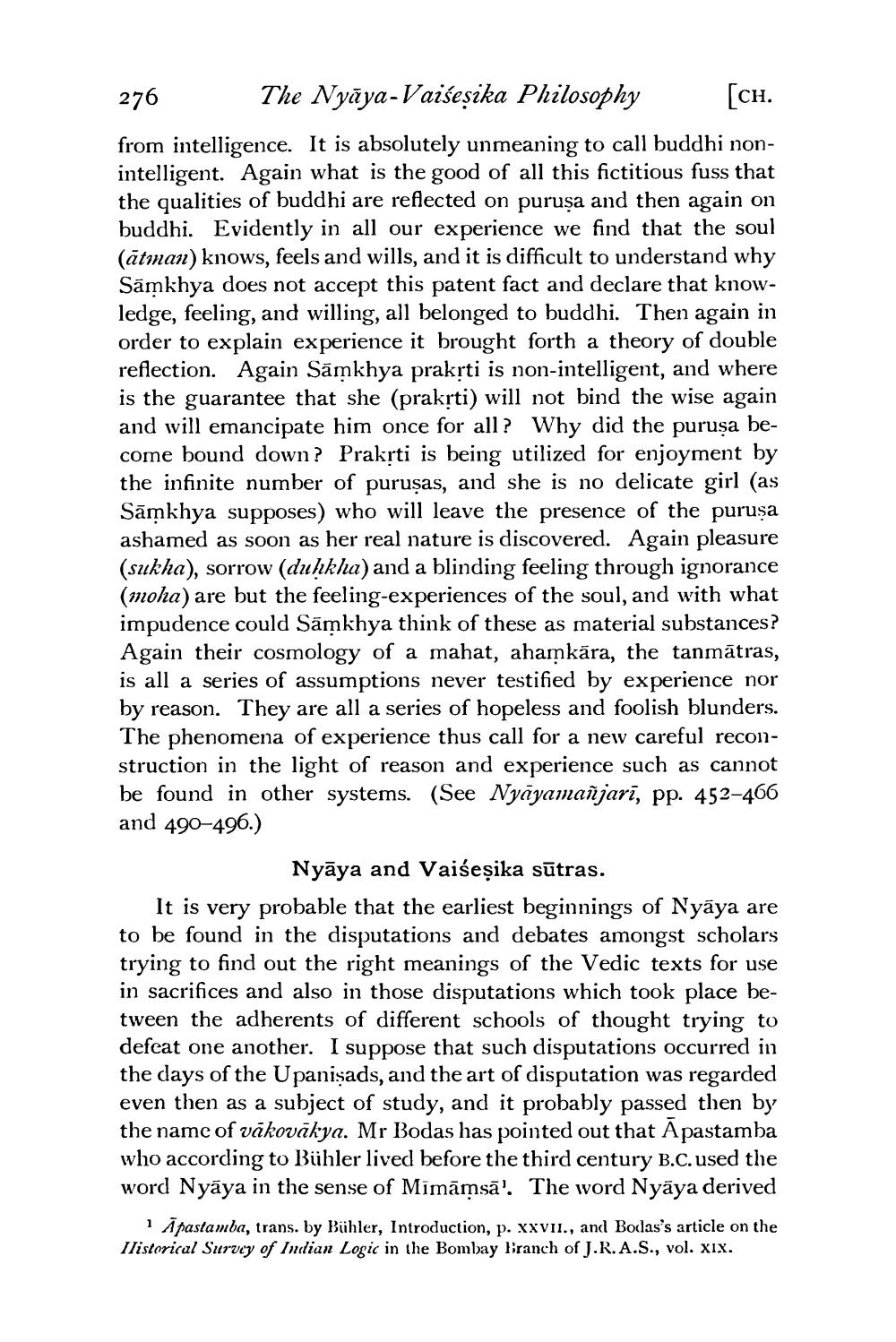________________
276 The Nyāya-Vaišeșika Philosophy [CH. from intelligence. It is absolutely unmeaning to call buddhi nonintelligent. Again what is the good of all this fictitious fuss that the qualities of buddhi are reflected on purusa and then again on buddhi. Evidently in all our experience we find that the soul (ātman) knows, feels and wills, and it is difficult to understand why Sāmkhya does not accept this patent fact and declare that knowledge, feeling, and willing, all belonged to buddhi. Then again in order to explain experience it brought forth a theory of double reflection. Again Sāmkhya prakrti is non-intelligent, and where is the guarantee that she (prakrti) will not bind the wise again and will emancipate him once for all? Why did the puruşa become bound down? Prakrti is being utilized for enjoyment by the infinite number of purusas, and she is no delicate girl (as Sāmkhya supposes) who will leave the presence of the puruşa ashamed as soon as her real nature is discovered. Again pleasure (sukha), sorrow (duḥkha) and a blinding feeling through ignorance (moha) are but the feeling-experiences of the soul, and with what impudence could Sāmkhya think of these as material substances? Again their cosmology of a mahat, ahamkāra, the tanmātras, is all a series of assumptions never testified by experience nor by reason. They are all a series of hopeless and foolish blunders. The phenomena of experience thus call for a new careful reconstruction in the light of reason and experience such as cannot be found in other systems. (See Nyāyamañjarī, pp. 452-466 and 490-496.)
Nyāya and Vaiseșika sūtras It is very probable that the earliest beginnings of Nyāya are to be found in the disputations and debates amongst scholars trying to find out the right meanings of the Vedic texts for use in sacrifices and also in those disputations which took place between the adherents of different schools of thought trying to defeat one another. I suppose that such disputations occurred in the days of the Upanişads, and the art of disputation was regarded even then as a subject of study, and it probably passed then by the name of vākovākya. Mr Bodas has pointed out that Apastamba who according to Bühler lived before the third century B.C. used the word Nyāya in the sense of Mimāmsā'. The word Nyāya derived
i pastamba, trans. by Bühler, Introduction, p. XXVII., and Bodas's article on the llistorical Survey of Indian Logic in the Bombay Branch of J.R.A.S., vol. xix.




